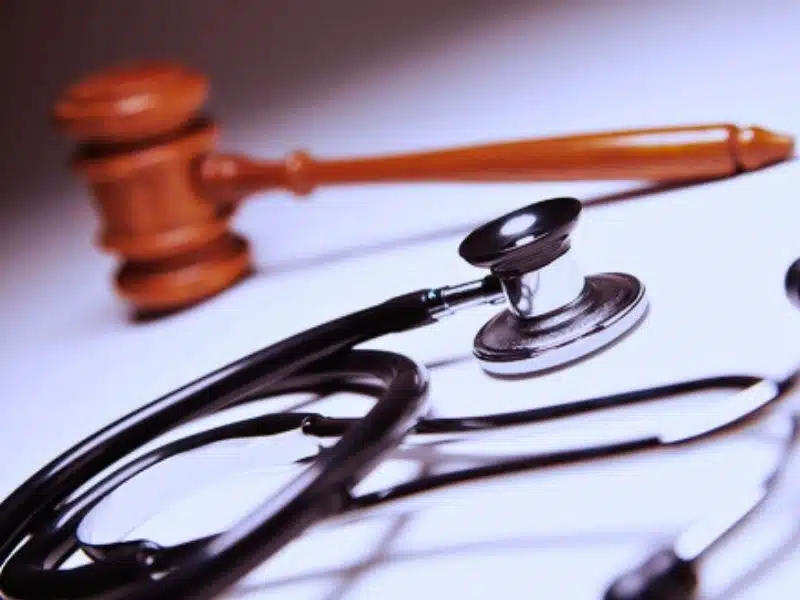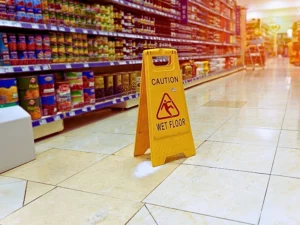To prove negligence in a legionnaires’ disease claim, you will need to establish that the defendant had a duty to avoid causing harm to you, the defendant breached that duty, the defendant’s actions or inaction caused you to suffer injuries, and that you suffered some type of loss because of the defendant’s action or inaction.
What Causes Legionnaires’ Disease?
Legionnaires’ disease is a form of pneumonia that is caused by exposure to the legionella bacteria found in freshwater sources. It can be contracted by inhaling contaminated water vapor. The disease causes symptoms such as fever, cough, and confusion. Outbreaks can occur in natural and man-made water sources with temperatures ranging from 77 to 122 degrees Fahrenheit. It is more common for large outbreaks to happen in artificial settings.
Legionella bacteria commonly grow in water systems that are part of the infrastructure, such as plumbing systems, air conditioning systems, and water heaters. These bacteria can also cause outbreaks in recreational water sources like hot tubs, spas, and pools.
The bacteria tend to thrive in areas of a building that are continuously wet, and can spread through devices that release water droplets contaminated with the bacteria. Inhaling these contaminated droplets can lead to exposure to the disease. Therefore, it is important to be careful when coming into contact with such devices, including humidifiers, showers, taps, spa pools, hot tubs, and water pipes, as they can put you at risk of contracting the disease.
Long-term effects of Legionnaires’ disease include fatigue, neurologic and neuromuscular symptoms.
What Is the Responsibility of Property Owners to Prevent Outbreaks?
Premises owners, occupiers, or managers are responsible for a legionella outbreak that may happen in their property. This applies to hotels, hospitals, senior housing facilities, cruise ships, condominiums, and apartment complexes. It is their legal responsibility to ensure that their guests are safe. Owners and occupiers must take reasonable care to prevent their guests from getting harmed by hazards that are not easily noticeable. They should be vigilant about risks that could put guests in danger. All premises owners and occupiers should be aware of the risk of Legionnaires’ disease, which can be caused by improper maintenance of pipes and water storage areas.
What Are the Elements of Proving Negligence in a Legionnaires’ Disease Claim in Nevada?
To establish liability for contracting Legionnaires’ disease, negligence in premises liability claims must be proven. To prove negligence, four elements must be demonstrated:
Duty of Care
The first step in determining negligence involves identifying whether the defendant owed the plaintiff a legal duty of care. A legal duty of care arises when there is a relationship between two parties, and one party has an obligation to exercise the same level of reasonable care that another person in a similar situation would exercise.
It is typically the responsibility of property owners or occupants to ensure that visitors to their property are kept safe and free from harm. This includes providing a safe environment and taking reasonable steps to correct or warn of any dangerous conditions on the property. This duty also extends to mitigating the risks of legionnaires’ disease by maintaining proper pipes and water storage areas.
Breach of Duty
The plaintiff needs to demonstrate that the owner or occupier of a property did not fulfill their responsibility of taking appropriate measures to warn or repair any hazardous situations on the premises.
To prevent the growth and spread of legionella bacteria, a reasonable person would take measures such as keeping the water temperatures either below 77 degrees or above 122 degrees to avoid the range in which the bacterium thrives. Regular risk assessments should be carried out to identify the risk areas for legionella, and formal written records of testing, inspections, and periodic maintenance of water systems should be kept.
Stagnation should be prevented where possible. When not possible, the water systems should be thoroughly disinfected using high heat, chlorination, or a chemical biocide. Biofilm buildup should be prevented by regularly eliminating the buildup of rust, algae, and other organic matter that could encourage bacterial growth. Any system faults found should be rectified immediately to prevent illnesses, and the production of aerosols and human exposure to them should be reduced by directing them away from building air intakes. Adequate training and information should be provided to staff.
If a property owner or occupier fails to do any of these, leading to legionella growth in the water system, he or she may have breached the duty of care to any persons visiting the property.
Causation
Simply breaching the duty of care is not sufficient for a valid lawsuit. You will need to show that the breach of duty of care was the cause of your injuries, in this case, contracting legionnaires’ disease. You must show that your exposure to legionella bacteria occurred at the premises.
To link a premises to the source of bacteria, you need to establish a connection between the onset of your disease and the premises. Bacteria incubate for 2–18 days before symptoms develop. Therefore, you need to identify the places you visited immediately before that period. Confirming exposure in a particular place requires sampling and testing of the water at that location, in addition to medical tests for diagnosis.
Damages
You must provide evidence of actual damages such as medical expenses, lost wages, or pain and suffering resulting from contracting Legionnaires’ disease.
Types of Damages in a Legionnaires’ Disease Claim
In a Legionnaires’ disease lawsuit, you can claim two types of damages as compensation, namely economic and non-economic damages. Your financial losses and how the illness impacts your life will determine the damages you can seek.
Economic Damages
Economic damages refer to the quantifiable losses that a person has suffered and can be calculated as a monetary value. These damages usually include medical expenses and lost earnings, such as initial treatment costs, prescriptive medication, and assistive medical devices. They may also cover the expenses of diagnostic tests, medical treatments and hospitalization, as well as the costs of care and assistance during recovery. The economic damages may also account for lost wages and the loss of future earning capacity, long-term costs in case of long-lasting symptoms, and lost wages during the recovery period.
Non-Economic Damages
Non-economic damages are typically awarded based on the emotional toll that an illness has taken on a person. These damages can include compensation for anxiety, depression, pain and suffering, disability, and loss of consortium. Proving and quantifying non-economic damages can be challenging since they are not directly tied to financial losses.
How an Attorney Can Help You Calculate Damages
How much is a legionnaires’ disease lawsuit worth? Calculating damages in a Legionnaires’ disease lawsuit is crucial, as it helps you decide whether to accept a settlement or keep fighting for maximum compensation.
There is no fixed formula to calculate damages. They usually depend on the victim’s actual expenses and compensation for their pain and suffering. The compensation should aim to make the injured person whole again.
While some damages such as medical bills and out-of-pocket expenses are easy to quantify as there are bills, statements, and receipts, more subjective damages including physical pain, emotional distress, or loss of life enjoyment can be difficult to calculate.
Knowing your estimated future costs, such as income losses and medical expenses, can also be difficult and often involves liaising with medical providers. Determining the financial losses may involve summing up all the related expenses, including loss of income, medical expenses, out-of-pocket costs, and additional costs.
Your Legionnaires’ disease lawyer will collect evidence of damages such as receipts, medical bills, records, and lost wages. They will review all the details to better understand your case and calculate your economic damages. Your attorney may also have an estimation of the future economic damages that you are likely to suffer and ensure that those are claimed for.
Assessing your non-economic damages involves considering factors such as the scope and permanence of your injury, the pain and suffering you experienced, the length of recovery, and the general disruption to your life and career. Your attorney will likely have experience in this area and can provide an estimate of the non-economic damages that you may recover.
If you contracted Legionnaires’ disease, the property’s owner, occupier, and/or manager may be able to be held liable in a premises liability claim. However, if faulty or defective water systems cause the growth or dissemination of Legionella bacteria, then the party involved in the design, development, engineering, construction, manufacture, installation, maintenance, and/or repair could be held responsible. Your attorney can help you decide who you should sue, how much to ask for, and how to prove negligence in your legionnaires’ disease claim.





